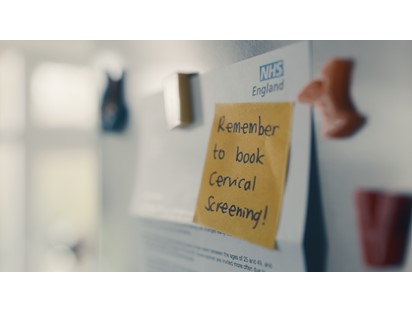An influential parliamentary committee has accused NHS England, the Government and Public Health England of ‘losing a grip’ on cervical cancer screening.
The Public Accounts Committee (PAC) found that cervical cancer screening rates have hit a 21-year low, and that targets for all the other programmes they reviewed – bowel, breast and abdominal aortic aneurism – were being missed.
The report also revealed that Public Health England had admitted that the IT supporting screening programmes were ‘hopeless’.
The PAC concluded: ‘The Department, NHS England and Public Health England are consistently failing to meet their targets for the number of people who should be screened and have no clear plan on how to reduce the alarming health inequalities that exist.
‘Just 71.7% of the eligible population, or 3.2 million women, were screened for cervical cancer in 2017-18, which represents a 21-year low. We are extremely concerned about the massive disparity around the country with some areas in the North East consistently reaching more of their eligible populations than areas of London.’
It also said that the IT supporting breast screening – NHAIS – was ‘woefully inadequate’.
The report said: ‘NHS England has decided that it can no longer work with Capita, its original partner, on this project, so NHS Digital will take on responsibility for replacing NHAIS. Until NHAIS is replaced, there remains a risk that more people will not be invited for screening when they should be. After those eligible for screening have been identified using NHAIS, each screening programme has its own IT system to send invites, reminders and test results.
‘Public Health England acknowledges that the IT supporting some individual screening programmes is “hopeless”. The IT supporting the breast screening programme causes us particular concern. Public Health England put in place a new, single system in 2016 to replace the 78 separate systems that had previously been propping up the programme. The national health bodies, by not undertaking this reform sooner, undoubtedly contributed to the ambiguity around.’
PAC chair Meg Hillier MP said: ‘The benefits of screening cannot be under-estimated: if found at an early stage, treatment can be significantly more effective. Yet millions of people are not being screened for serious illnesses like bowel, breast and cervical cancer.
‘Our inquiry has exposed a health service that is losing its grip on health screening programmes. Many individuals waiting for delayed results will suffer avoidable anxiety, stress and uncertainty. Those delays also stretch far beyond the Department’s target waiting periods.
She added: ‘The Government’s understanding of variation across the country and the barriers facing different demographics of the population is patchy at best, which constrains their capacity to act.
‘Ultimately, this is a question of health equality. The Government has a duty to ensure that everyone has access to health screening.
‘We are pressing the Department and NHS England to set out a plan of action to: better hold local screening providers to account, overhaul governance arrangements and develop an IT system that works as intended.’
In March, Capita was stripped of its contract to run the cervical cancer administration with NHS England announcing the service would be brought back ‘in house’ from June.
The same month, PHE launched a major campaign in a bid to tackle the 20-year low in cervical screening uptake.
Meanwhile, research published in April suggested that cervical screening rates have dropped in some areas due to ‘confusion’ over the roles that CCGs, local authorities and NHS England had to play in delivering screening following changes in the 2013 Health and Social Care Act.
Pulse October survey
Take our July 2025 survey to potentially win £1.000 worth of tokens














